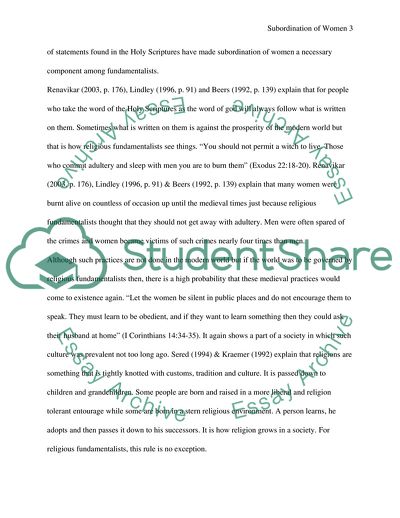Cite this document
(Religious Fundamentalism and the Subordination of Women Essay Example | Topics and Well Written Essays - 2000 words, n.d.)
Religious Fundamentalism and the Subordination of Women Essay Example | Topics and Well Written Essays - 2000 words. https://studentshare.org/social-science/1840293-is-the-subordination-of-women-a-necessary-component-of-religious-fundamentalism
Religious Fundamentalism and the Subordination of Women Essay Example | Topics and Well Written Essays - 2000 words. https://studentshare.org/social-science/1840293-is-the-subordination-of-women-a-necessary-component-of-religious-fundamentalism
(Religious Fundamentalism and the Subordination of Women Essay Example | Topics and Well Written Essays - 2000 Words)
Religious Fundamentalism and the Subordination of Women Essay Example | Topics and Well Written Essays - 2000 Words. https://studentshare.org/social-science/1840293-is-the-subordination-of-women-a-necessary-component-of-religious-fundamentalism.
Religious Fundamentalism and the Subordination of Women Essay Example | Topics and Well Written Essays - 2000 Words. https://studentshare.org/social-science/1840293-is-the-subordination-of-women-a-necessary-component-of-religious-fundamentalism.
“Religious Fundamentalism and the Subordination of Women Essay Example | Topics and Well Written Essays - 2000 Words”. https://studentshare.org/social-science/1840293-is-the-subordination-of-women-a-necessary-component-of-religious-fundamentalism.


